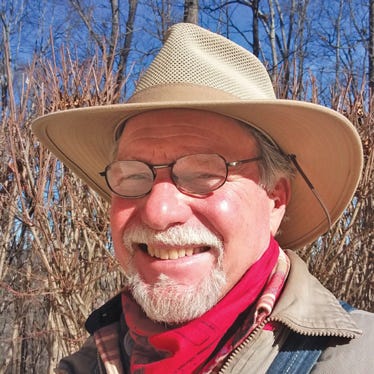
History tells us that few pioneers accumulated much wealth.
These days, most new businesses fail in less than three years. Ditto this for agriculture. Most cattle operations require an outside source of income to maintain “lifestyle” of the family. There are lots of good examples of successful ranchers/farmers that lived poor in order to die rich.
Actually “broke” ain't all that bad, as long as it is a state of mind. I heard a self-made multi-millionaire timber baron make a statement that he got up broke every morning of the year until he had worked out another million which usually took him until sometime in early November.
Over the next several weeks/months I will delve into a great percentage of the factors that make successful operations vibrant and wholly alive.
Attitude is number one. Our attitude is a good measurement of the altitude we might attain. In the cattle business it is more than just attitude. Gordon Hazard describes it as "a state of mind" that is beaming between our ears constantly from the time we rise in the morning until the sun has gone from the western sky. Our attitude is molded and chiseled in stone to the point that some outsiders consider us to be cheap-skates.
I say we are "real tight” but not cheap. Truth is that highly successful ranchers are so tight they almost sound like they need oiling as they move about. Every decision is based on profit.
Hazard says that there just isn’t much sportsman about a good rancher. He is a meat hunter by necessity.
Cattle and ranching is a simple business. We must have forage and a lot of it, fence, good water, and some shade. But there are lots of little details we must learn and practice. All of this starts with and is governed by our attitude. It is quite possible to fail with a winning attitude but is near impossible to be much of a success and stink at the same time.
All of us have a limited set of resources with which to work. We all have advantages and disadvantages and it is important to identify them and begin the job of getting our operation in sync with reality and the natural model.
Walt Davis and I agree that this does not mean that we necessarily duplicate what our colleagues are performing.
People claim that Walt and I are different from the vast majority of folks in agriculture. The truth is that they are right. We just don’t think the same as they do.
In our business, that is a good thing.
About the Author(s)
You May Also Like






